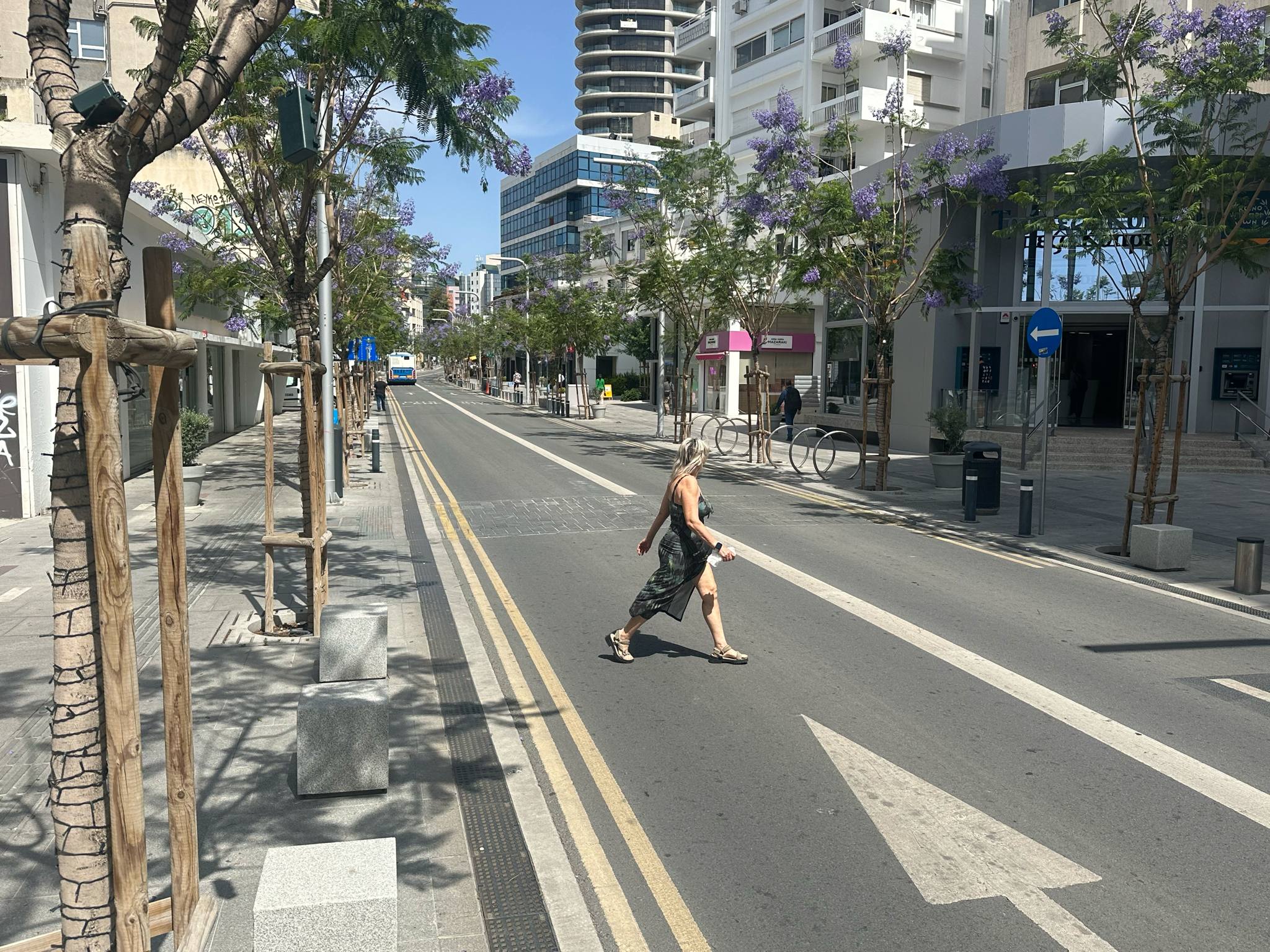In taking a decision to re-open Nicosia’s Makarios Avenue to traffic, Cyprus has risked its credibility with the EU, Greens MP Charalambos Theopemptou said on Thursday.
Theopemptou, the chairman of the House environment committee, was speaking at the transport committee in parliament, which was discussing the issue along with micromobility in the capital.
Recently, Nicosia municipal councillors had voted for the central Nicosia street to reopen for traffic after it was closed except for buses and taxis under a master plan for the area, which was EU funded in part.
Despite a backlash, the municipality has stood firm over its move, saying it was done to breathe life back into the city centre.
The European Commission had co-funded the restoration of Makarios Avenue on condition that it restricted traffic. The cash had come from the Cohesion Fund, part of a programme promoting ‘sustainable urban mobility’.
Theopemptou said the cash handout was in the region of €20 million. He also pointed out that an EU representative had made it clear the matter was very serious
The Greens MP said that with the EU money, the Nicosia Sustainable Mobility Plan had been drawn up in 2010 with a public consultation.
“In 2020, again with money that we got from elsewhere, we made the plan prepared by the experts, for which a public consultation was also held and based on that other projects were started again,” he said.
“Therefore, he said, no one can say that they were not aware, especially the local authorities who are among the first to take part in the consultations. Everyone knew the plan, everyone knew which streets would be one-way, which streets would be for buses only,” he added.
Theopemptou said Cyprus’ credibility in the EU “will be shattered if we tell them we want money for one reason and then do other things”.
In response to a journalist’s comment that the goal of bringing life to the revamped area, was not achieved because two-fifths of the shops were shuttered, Theopemptou added: “We failed as a state and as a city. The plan did not fail.”
He cited the opening of malls very close to the city and said no measures were taken to get people to come to Nicosia. The conditions were not created to make it attractive for people to go to Makarios Avenue, Theopemptou charged.
The municipality has yet to formally request the police chief to approve the decision as he must sign off on any new traffic arrangements.
Meanwhile, Akel MP referred to the non-implementation of legislation regarding personal micromobility devices such as scooters.
“At a time when our cities are facing increasing traffic and environmental problems, the integration of these means into urban mobility is more necessary than ever,” he said.
He added that while it is common knowledge that micromobility, mainly with electric scooters, bicycles and other light mobility vehicles, “is a modern, environmentally friendly and flexible form of urban mobility”.
But in Cyprus, despite the first steps that have been taken with the adoption of legislation, “is substantially lagging behind in the implementation and supervision of micromobility and in the use of all these devices,” Fakondis said.
He said the framework governing the use of such devices remains unclear, while basic infrastructure, such as safety routes and charging points, are lacking.
It was also necessary to ensure that users of such vehicles were insured and protected in the event of an accident. This issue was to be discussed at the committee but the transport ministry was not prepared but promised a new bill by September.
It was reported early on Friday that the Nicosia municipality is waiting for a decision from the official body that studies and regulates traffic issues. They are due to meet on June 19. Their decision is expected to be binding.






Click here to change your cookie preferences